The Best English Cottage Garden Design Elements
There’s something irresistibly charming about an English Cottage Garden. Overflowing with blooms, buzzing with bees, and framed by winding paths and weathered fences, these gardens feel straight out of a storybook.
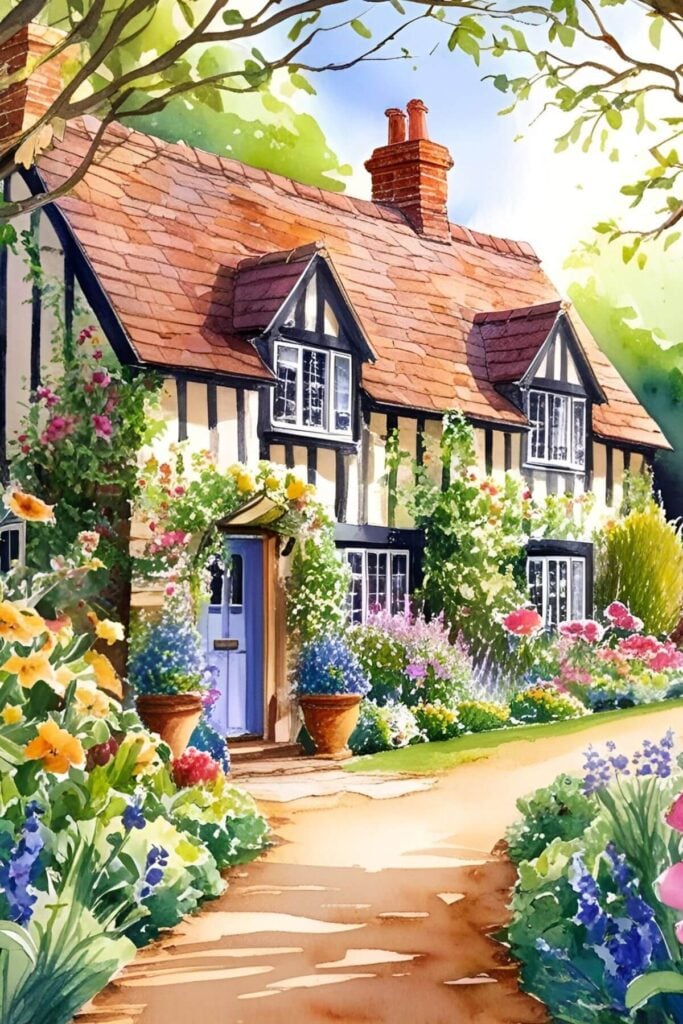
If you love the English cottage look, English Cottage Living Room Ideas and 35 Best Cottage Garden Flowers to Grow will help you on your home decor journey.
Behind that “accidental” look is a thoughtful blend of tradition, creativity, and nature-led design. Whether you’re planning your dreamy garden space or love admiring it from afar, let’s explore the essential elements that make up a true English cottage garden.
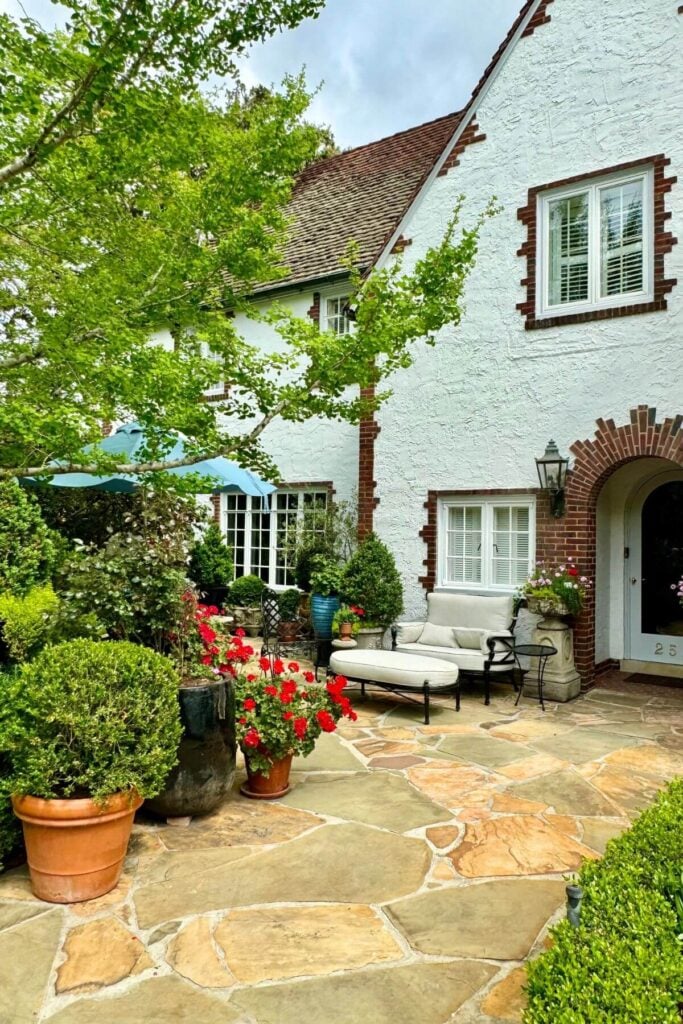
I recently went to the Azalea Garden Tour in Wilmington, NC. One of the homes featured was a gorgeous English cottage. It was the perfect home to showcase the design elements of an English cottage garden.
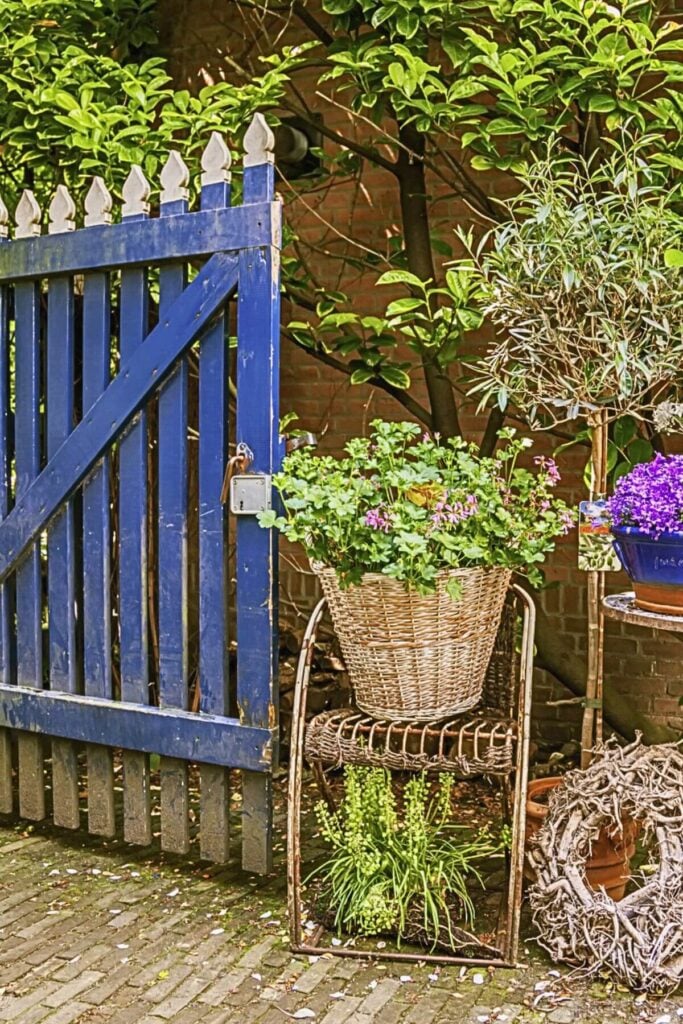
Creating a Cozy Life Group
Since you found this article on Design Elements of an English Cottage Garden, I’m guessing you love all things cozy living. I created a Facebook group called Creating a Cozy Life with over 215,000 like-minded souls.
It’s a group where we share recipes, photos of things that leave you in awe, and ideas on how to make your life just a little bit more snug. Join here to be part of the virtual cozy cottage.

Elements of an English Cottage Garden Design
1. Soft Romantic Planting Style

The hallmark of a cottage garden is its relaxed, informal planting.

Think of layers of flowers that blend into one another, spilling over paths and mixing color, texture, and height.

Plants are chosen for more charm than perfection – old-fashioned favorites like hollyhocks, foxgloves, delphiniums, roses, and lavender are often at the heart of it all. Perennials, biennials, and self-seeding annuals help create that lush, lived-in look over time.
2. Usefulness

Historically, cottage gardens weren’t just about beauty; they were practical, too. Herbs like thyme, sage, and chives often share space with flowers, and you’ll frequently find a few vegetables tucked in among the blooms.

An English garden is a lovely blend of ornamental and edible, with a nod to the resourcefulness of earlier generations who grew what they needed close to home.
3. Winding Pathways
Meandering paths are a quintessential feature of an English cottage garden, inviting a sense of whimsy and discovery. Rather than leading directly from point A to B, these winding walkways encourage slow strolls and lingering glances at blooms tucked into unexpected corners.

Lined with soft, overgrown borders, the curving paths create a natural rhythm that makes the garden feel like a secret worth exploring.
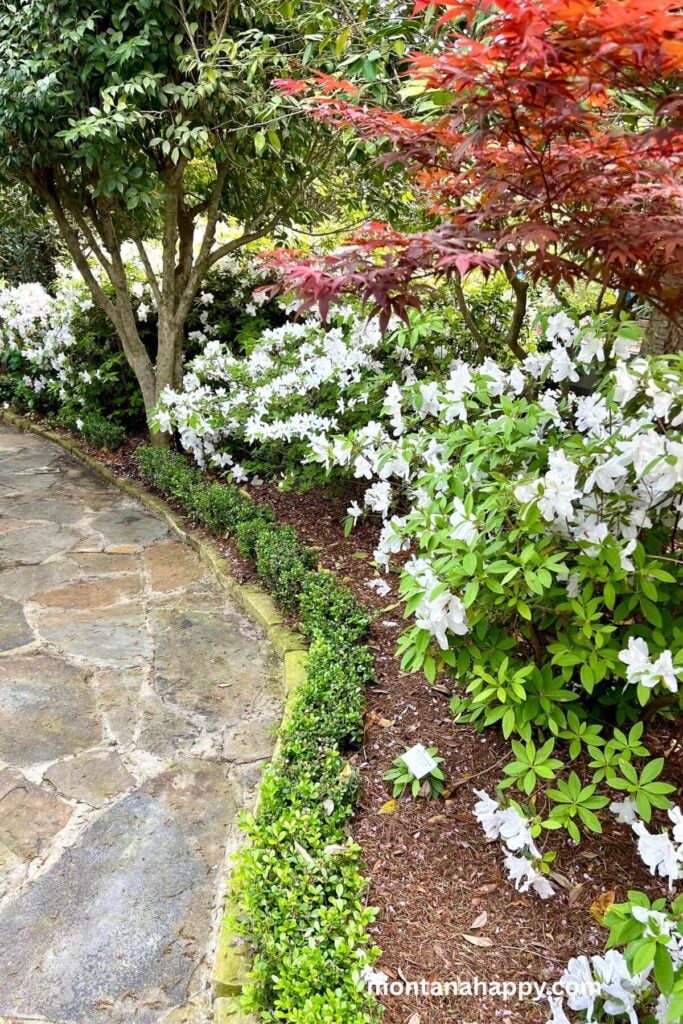
Each turn offers a new perspective: a tucked-away bench, a trailing rose, or a sunlit patch buzzing with bees.

4. Garden Walls

Walls in an English cottage garden add a sense of timeless charm and structure, creating a feeling of enclosure that makes the space feel both intimate and protected.

Whether built from weathered stone, red brick, or even whitewashed plaster, these walls become part of the garden’s story – aged and softened by climbing roses, ivy, or espaliered fruit trees.
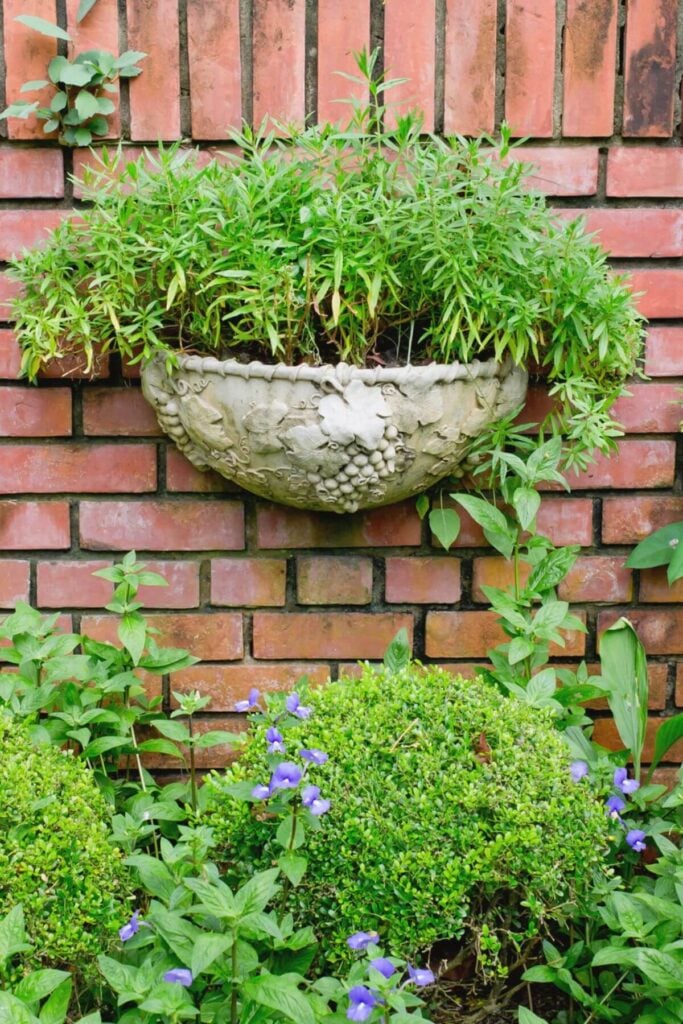
They offer a backdrop that highlights the lush, informal planting style typical of cottage gardens. Walls also provide practical benefits, like sheltering delicate plants from wind.

The brick garden wall above was the perfect way to hide air conditioning units and trash cans.
Garden walls offer a gentle sense of seclusion, inviting slow wandering, quiet moments, and the joy of discovering hidden corners just beyond view.
5. Potted Plants
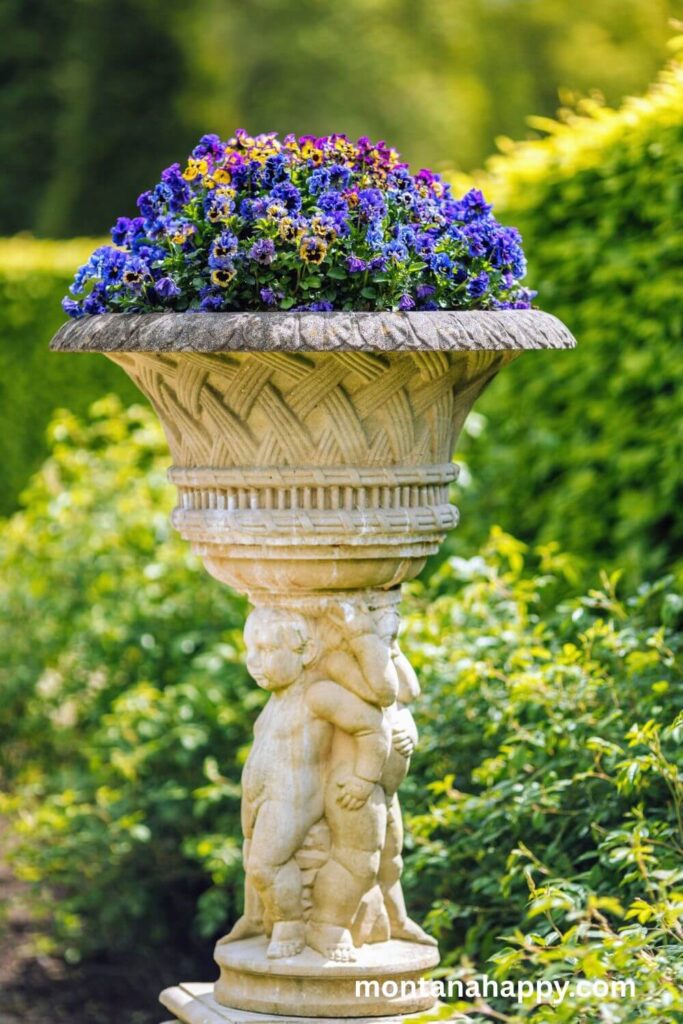
Potted plants add a versatile decorative element to an English cottage garden, enhancing its whimsical and layered appeal. Tucked beside weathered stone paths or perched on old wooden benches, terra cotta pots overflow with cheerful geraniums, trailing ivy, or fragrant herbs.
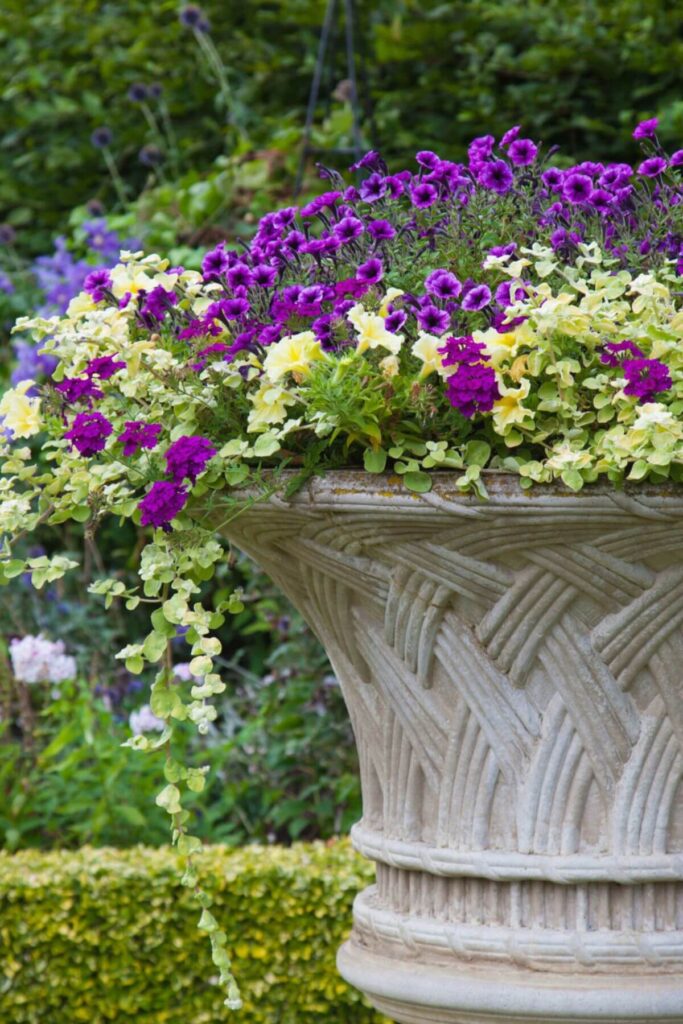
These moveable bursts of color and texture allow for playful arrangements that can be changed with the seasons or mood, creating focal points and softening hard edges.
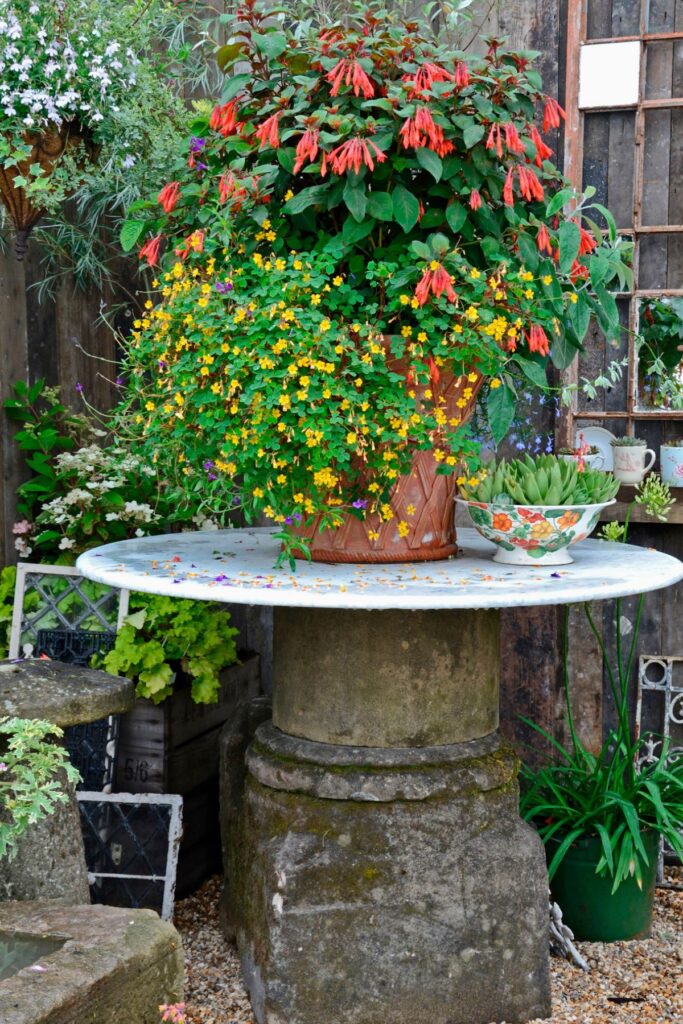
Whether clustered around a doorstop or lining a garden wall, potted plants lend a sense of coziness and informality that perfectly complements the cottage garden’s romantic, slightly untamed spirit.
6. Statuary

Statues bring a touch of timeless charm and elegance to an English garden, weaving a sense of history and storytelling into the landscape.

Whether it’s a moss-covered cherub tucked among the roses or a weathered stone urn standing sentinel at the end of a path, these pieces add personality and a hint of mystery.
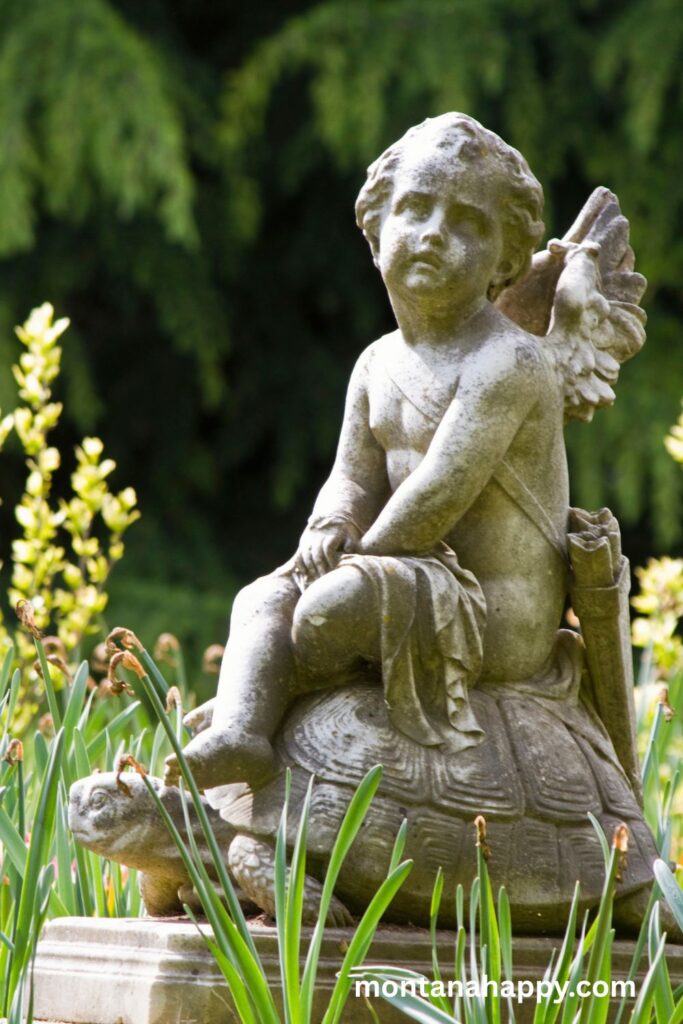
The statuary invites the eye to linger and the imagination to wander, creating moments of pause amidst the lush, often whimsical planting.

With their classical lines or rustic charm, statues anchor the garden’s natural beauty, offering contrast and a sense of permanence in a space that changes with the seasons.
7. Wildlife-Friendly Features

A wildlife-friendly element is right at home in an English cottage garden, where the natural, slightly untamed style encourages birds, bees, and other beneficial creatures to visit and stay.
Think of a patch of wildflowers buzzing with pollinators, a tucked-away log pile for hedgehogs or insects, or a shallow stone birdbath where robins splash on warm afternoons.

The beauty of a cottage garden lies in its harmony with nature, and welcoming wildlife not only adds life and movement to the space but also supports a thriving, healthy ecosystem. From native blooms to berry shrubs, each thoughtfully chosen plant becomes part of an invitation for nature to settle in.
8. Cozy Nooks

Cozy nooks are the heart of an English cottage garden, offering quiet spots to pause and soak in the beauty of the surroundings.
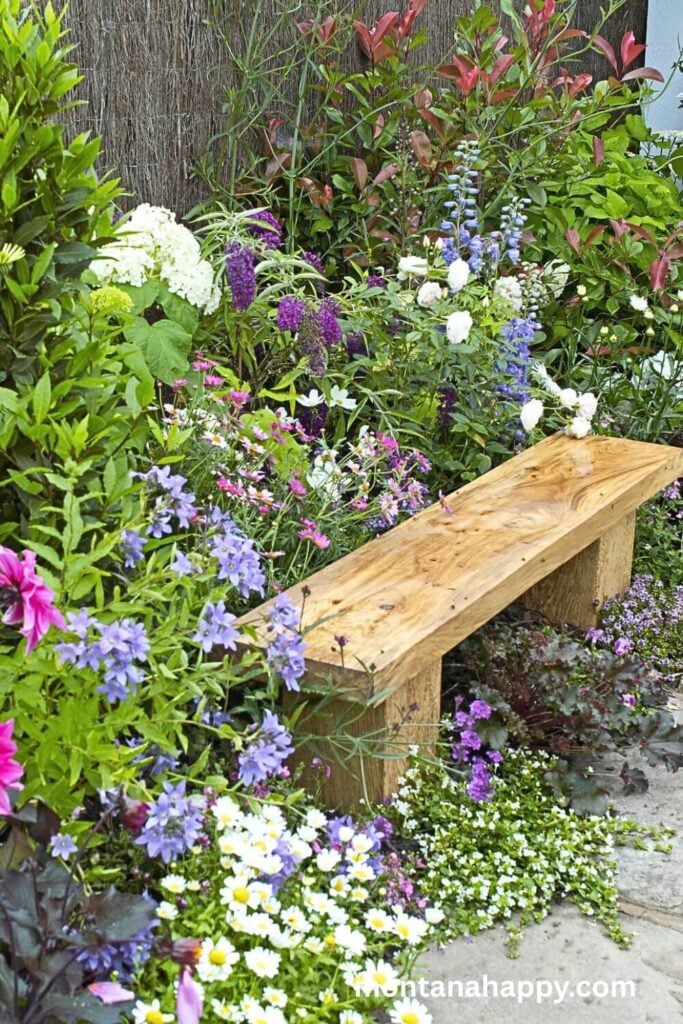
These little hideaways might be a weathered wooden bench beneath a flowering arch, a bistro table tucked behind tall hollyhocks, or a hammock strung between two trees where dappled sunlight filters through the leaves.
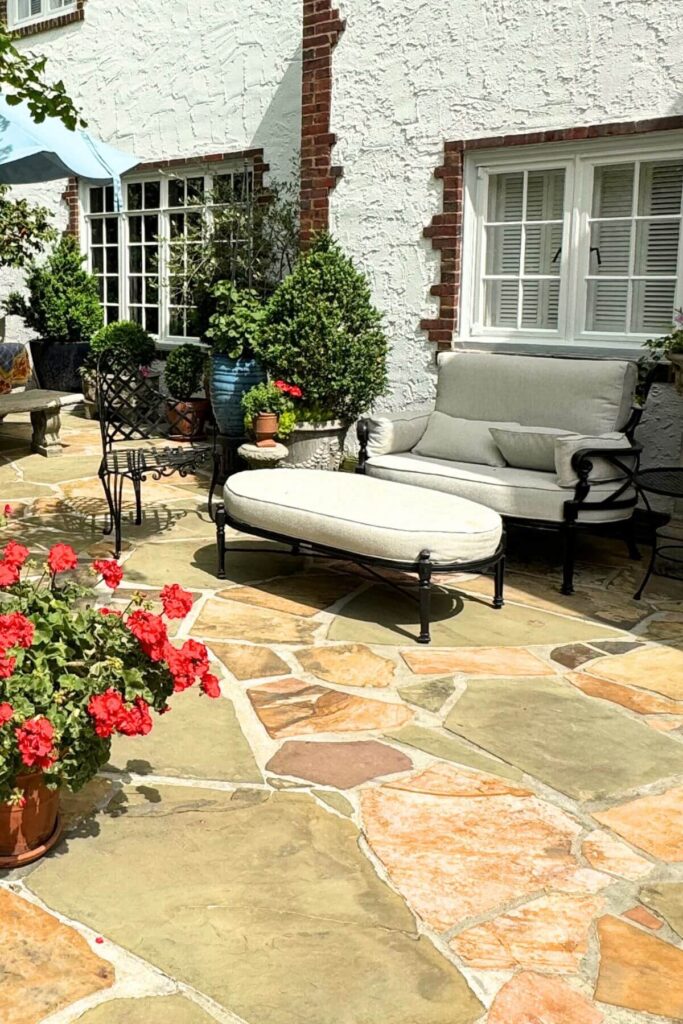
Framed by lush greenery and the soft hum of bees, these nooks invite slow mornings with a cup of tea or peaceful afternoons with a good book. In a garden full of life and blooms, these intimate corners create space for stillness, making the garden feel not just beautiful but lived-in and loved.
9. Alfresco Dining

There’s something irresistibly charming about enjoying a meal outdoors in an English cottage garden. The setting feels romantic and relaxed, with winding stone paths, ivy-covered walls, and bursts of color from flowers.

A wrought iron table set beneath climbing roses becomes the perfect spot for tea and scones or a light summer lunch. The scent of herbs drifts from nearby pots, and the soft hum of bees and birdsong provides a natural soundtrack.

Eating a simple meal of crusty bread, garden greens, and a chilled drink tastes all the better in the open air, where time slows, and the world feels blissfully far away.
10. Weathered Features

Weathered features bring a sense of timelessness and quiet charm to an English cottage garden, as if the space has grown and evolved gently over the years.

Moss-covered stone walls and sun-bleached wooden benches feel perfectly at home among the rambling roses and self-seeded wildflowers. Rusted iron gates and cracked terracotta pots add texture and character, telling stories of seasons past.

These weathered elements don’t compete with the flowers – they complement them, grounding the garden with history and belonging. In these softly worn details, the true soul of a cottage garden begins to bloom.
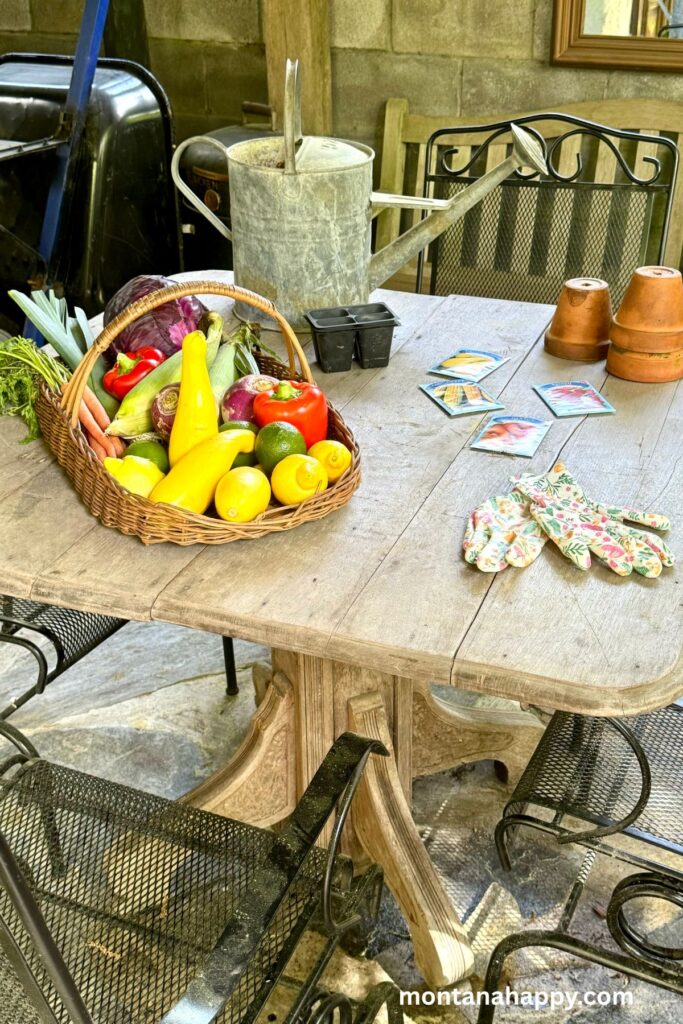
11. A Bit of Whimsy

Finally, no cottage garden is complete without a touch of the unexpected. Whether it’s a vintage watering can planted with violas, a teacup bird feeder, or an old chair used as a planter, these gardens reflect the gardener’s personality.
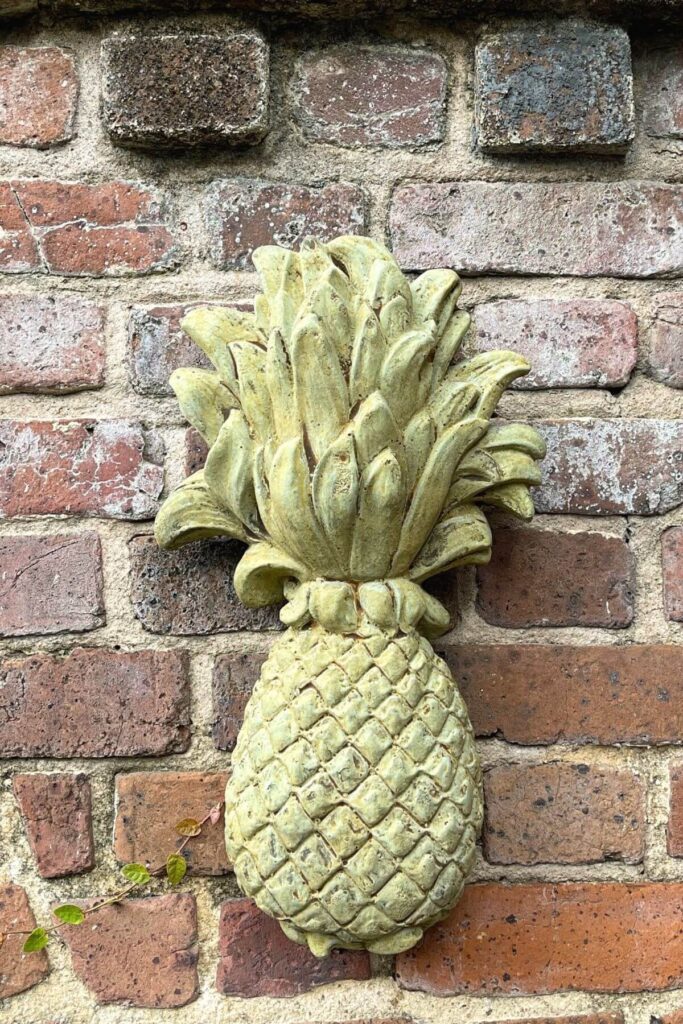
We’ve reached the end of Design Elements of an English Cottage Garden. I hope you enjoyed it!
Let me know what your favorite elements of an English cottage garden are.
Be sure to join the Creating a Cozy Life Facebook group. You’re not going to believe how amazing it is!
Thanks for stopping by. I’m so happy you found us.
Other English Cottage Articles
More Gardening Posts You’ll Love!
- How to Create a Romantic Garden
- Turning Your Backyard into a Moonlight Garden
- The Best Edible Flowers to Grow
- Elements of a Secret Garden






